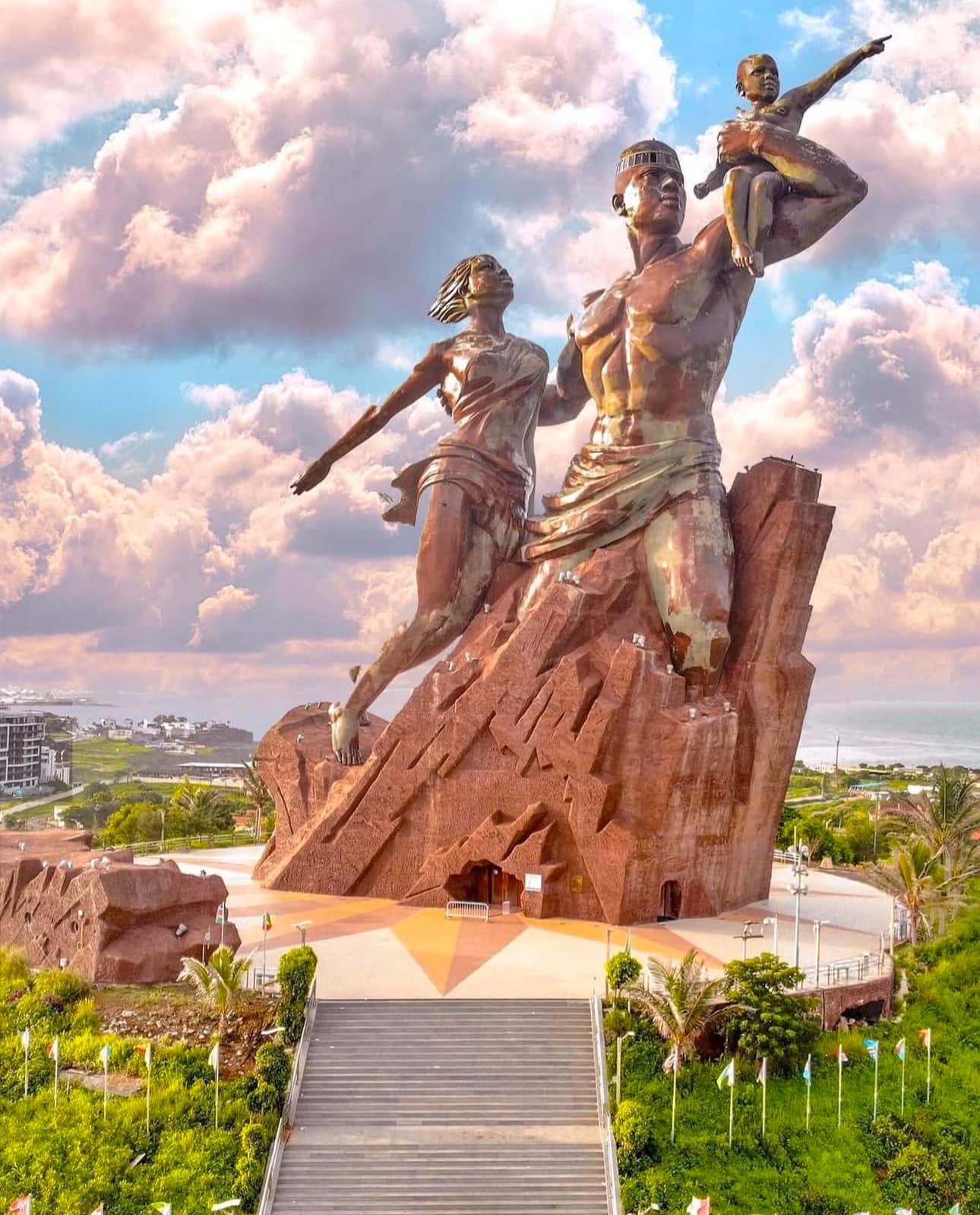Our Terms & Conditions | Our Privacy Policy
No Longer a Pawn, Now a Player – KT PRESS
9

African Renaissance Monument, Senegal. Net Photo.
In today’s shifting global order, Africa is gaining strategic traction in a world no longer defined by a simplistic East-West binary.
With the decline of U.S. global hegemony and the rise of new powers, African states are finding opportunities to assert their agency and navigate a multipolar world on their own terms.
China’s strategy in Africa has long been driven by economic interests, infrastructure investment, and a principle of non-interference. This model, framed under the concept of “South-South Cooperation,” has appealed to many African governments.
It promises development without conditionality: no demands for governance reforms or human rights improvements in exchange for the infrastructure that Africa desperately needs.
In contrast to the traditional aid-based model of the West, China offers partnerships that emphasise respect for sovereignty, economic cooperation, and shared prosperity.
As a result, these relationships have allowed China to entrench itself in strategic sectors, from natural resources to digital infrastructure and communication.
Recognising the appeal of China’s hands-off approach, Western countries, particularly in Northern Europe, are adopting new strategies.
Nations like Denmark, Norway, and Finland are shifting from aid-driven policies to ones focused on trade, mutual investment, climate adaptation, and multilateral cooperation.
Later this year, Denmark will open a full embassy in Rwanda as part of a broader Africa engagement strategy, with similar moves planned for Senegal and Tunisia.
These efforts aim to rebuild relationships based on equal partnership, moving away from the legacy of conditional aid and donor paternalism.
Africa Rejects Neo-Colonial Influence
In West Africa, resentment towards lingering colonial influence has sparked a wave of political change.
In countries like Mali, Burkina Faso, and Niger, citizens have protested against French military presence and economic dominance.
A series of military coups, often attributed to frustration with foreign interference and instigation from the West, have underscored the urgency for a new political and economic order.
Rather than condemning these shifts, many Africans view them as expressions of sovereignty and popular will.
Calls for nationalising resources, breaking away from exploitative foreign contracts, and rejecting neo-colonial frameworks are gaining traction across the continent, as well as among the African diaspora and progressive forces in the East.
A renewed spirit of Pan-Africanism is also guiding Africa’s geopolitical strategies.
Countries such as Zambia, South Africa, Namibia, and Tanzania are asserting greater control over their natural resources and redefining the terms of engagement with foreign partners.
The African Continental Free Trade Area (AfCFTA), combined with the African Union’s Agenda 2063, aims to consolidate Africa’s bargaining power and foster internal economic resilience.
These efforts suggest that Africa is no longer waiting to be shaped by others; it is setting its own agenda.
Rwanda’s Pre-eminence as a Pragmatic Diplomatic Actor
Rwanda has positioned itself as a key example of this pragmatic and self-assured approach.
With a focus on domestic reforms, regional diplomacy, and digital innovation, the country has attracted investments and strategic partnerships from both the East and West.
The upcoming Danish embassy in Kigali signals growing recognition of Rwanda’s regional role. Nordic countries are keen to partner on trade, green energy, security, and inclusive governance, areas in which Rwanda is actively positioning itself.
Principles, Not Polarity
Africa’s emerging strategy in this new world order is not about choosing sides between global powers; rather, it is about selecting the best offerings from a diverse banquet.
The continent seeks relationships characterised by mutual respect, fair trade terms, development without coercion or the “big brother” syndrome, genuine opportunities for youth and innovation, and a voice on the global stage.
This does not mean that core values like democracy, human rights, and good governance are forgotten.
These remain African aspirations but must be nurtured from within, rather than imposed from outside.
Thus, the rise of a multipolar world presents Africa with a unique opportunity to redefine its role in global affairs, establish the rules of engagement, and assert its development priorities.
In this new configuration, Africa is no longer a spectator; it is a player.
Dr. Haron Mwangi is a Scholar and Researcher at Maseno University, Kenya. He also serves as the Executive Director of Future Africa Concern Institute (FACI)
[ad_1]
Images are for reference only.Images and contents gathered automatic from google or 3rd party sources.All rights on the images and contents are with their legal original owners.
[ad_2]



Comments are closed.